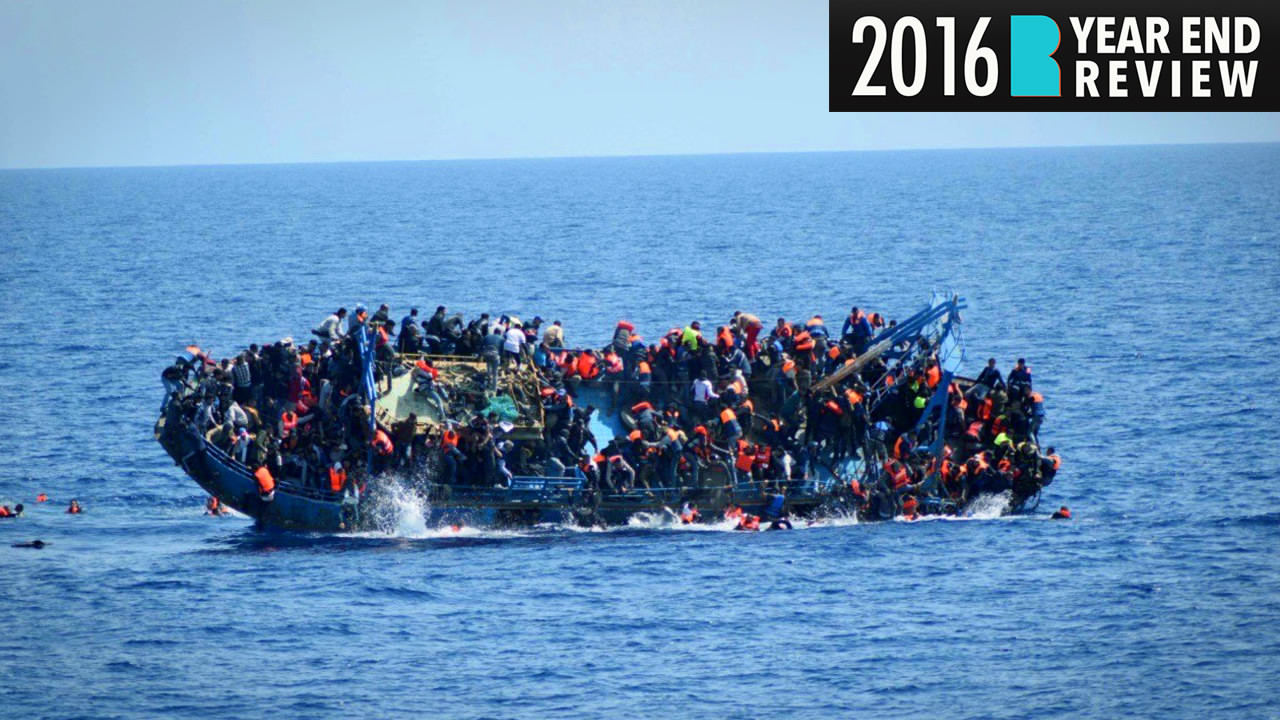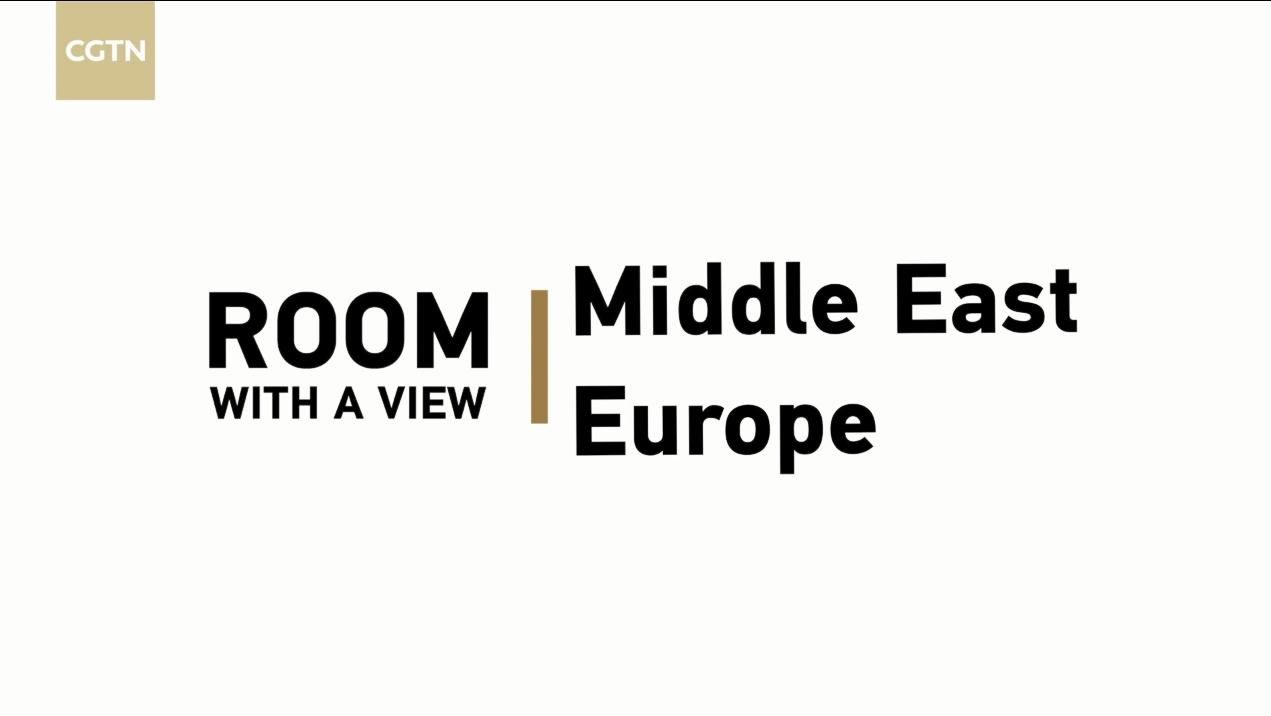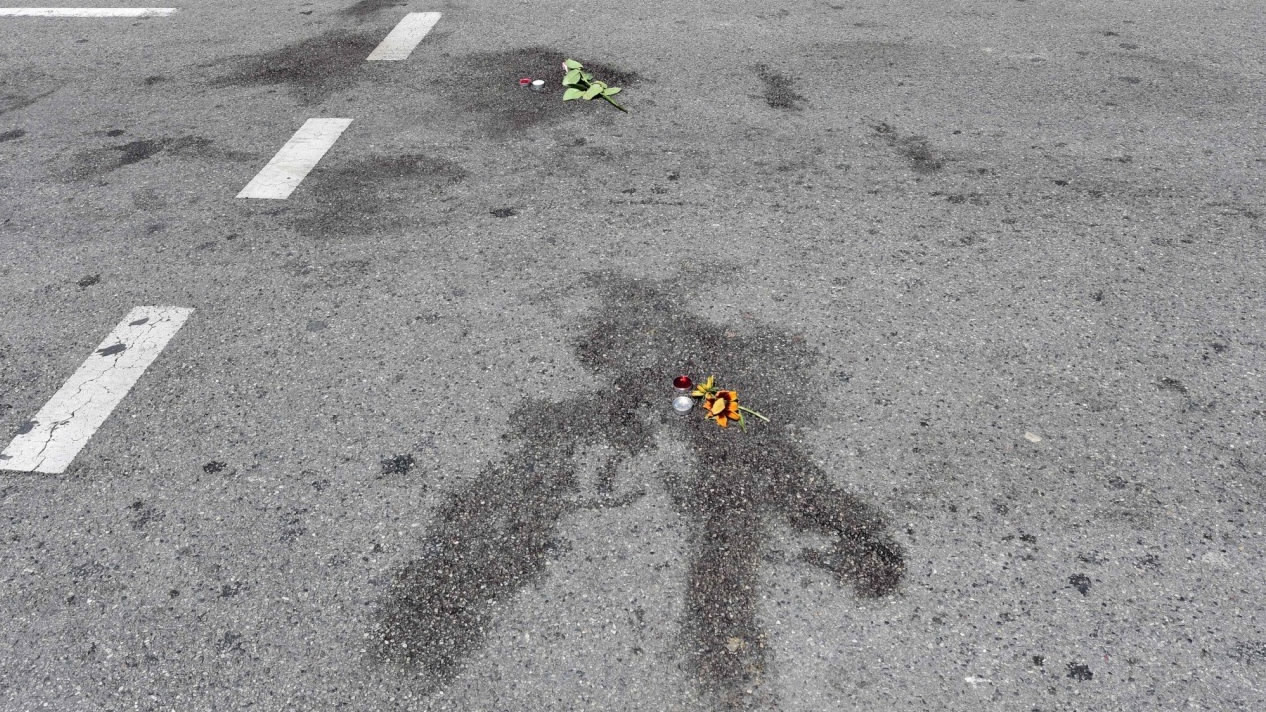- Drop in migrants arriving in Europe by sea, but 2016 is the deadliest year yet for those crossing the Mediterranean as record numbers arrive from northern Africa
- Individuals pledging allegiance to ISIL spark terror in France, Belgium and Germany
- Far-right and populist parties gain an audience in Europe ahead of key election year in Germany, France and the Netherlands
Europe was rocked by political and economic crises in 2016. But issues of more direct human consequence also preyed on the continent - and led to the deaths of thousands.
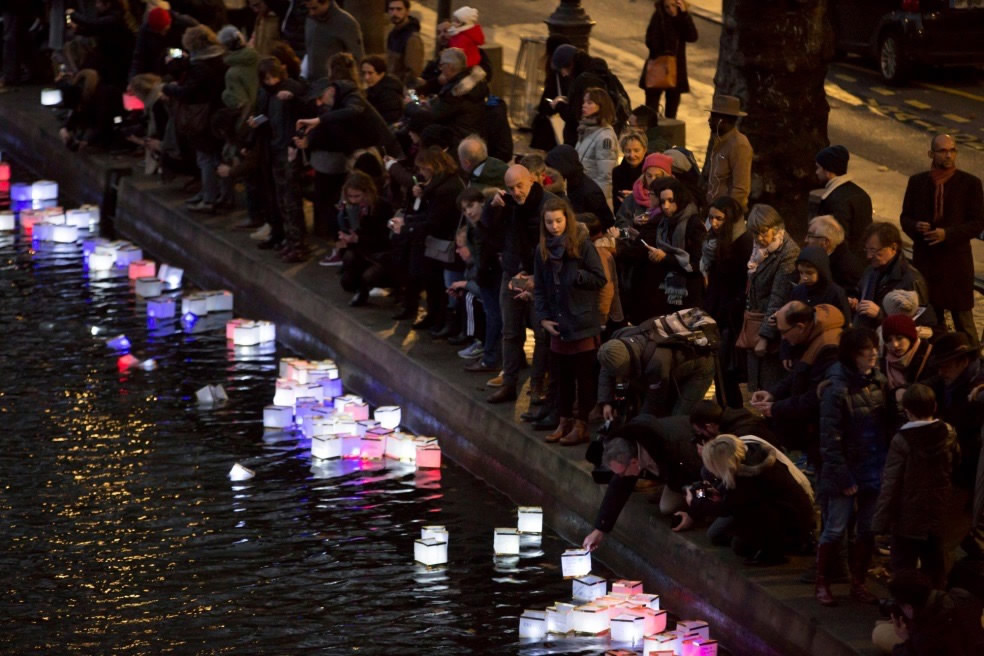
Hundreds of paper lanterns float down Paris’ Canal Saint-Martin as crowds look on in silence to mark one year since deadly ISIL attacks rocked the city. Nov 11, 2016 /CFP Photo
Hundreds of paper lanterns float down Paris’ Canal Saint-Martin as crowds look on in silence to mark one year since deadly ISIL attacks rocked the city. Nov 11, 2016 /CFP Photo
2016 was the deadliest year for migrants crossing the Mediterranean heading for Europe. Thousands perished in the water while fleeing conflict zones in the Middle East and Libya – displaced by the chaos in Syria or the territorial ambitions of ISIL.
And in Europe, individuals pledging allegiance to the terror group sparked fear and chaos on the streets of France, Belgium and Germany.
MIGRANT WOES
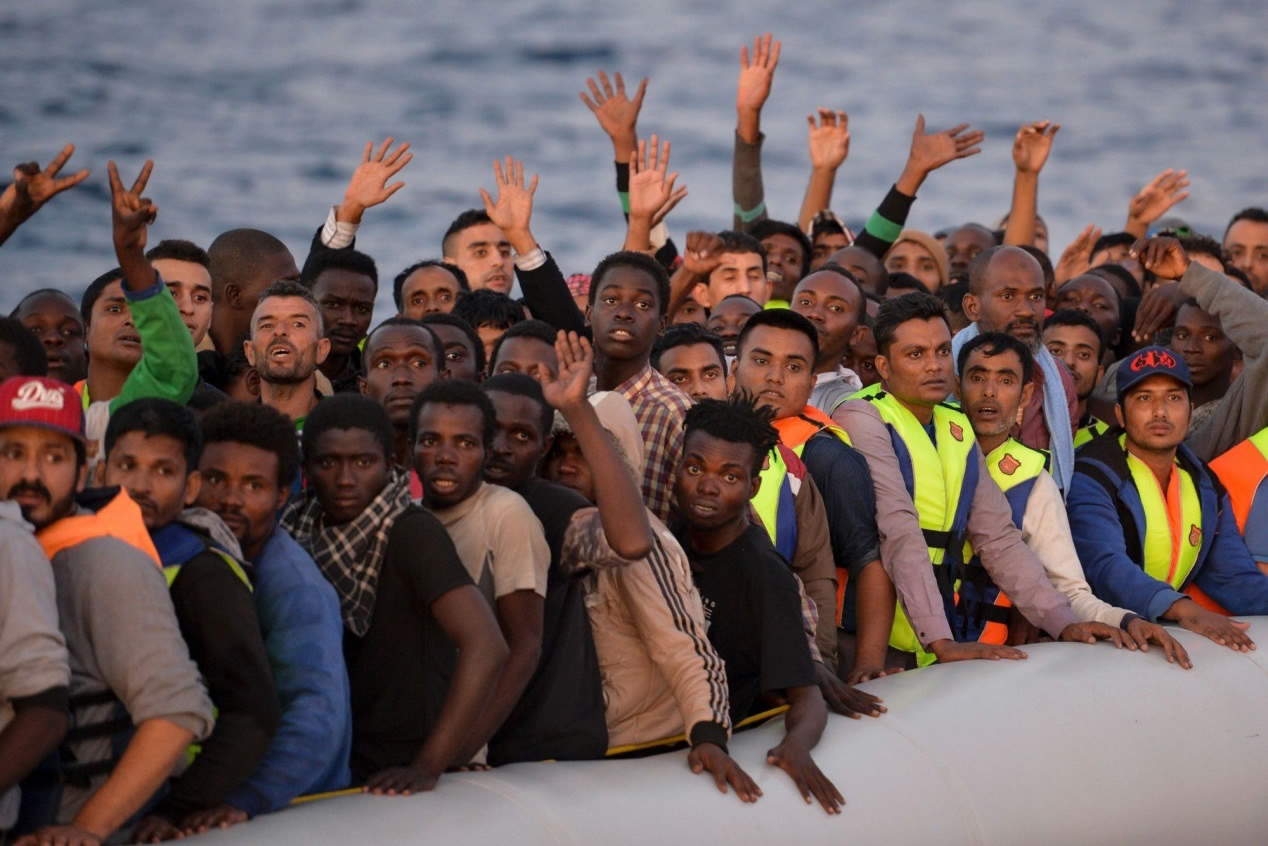
Migrants and refugees sit on a rubber boat before being rescued by the ship Topaz Responder run by Maltese NGO Moas and Italian Red Cross off the Libyan coast in the Mediterranean Sea, on November 5, 2016 off the coast of Libya. /CFP Photo
Migrants and refugees sit on a rubber boat before being rescued by the ship Topaz Responder run by Maltese NGO Moas and Italian Red Cross off the Libyan coast in the Mediterranean Sea, on November 5, 2016 off the coast of Libya. /CFP Photo
Horrors were experienced and witnessed in the Mediterranean, as desperate migrants attempted to reach Europe from northern Africa.
Coordinated government action resulted in a sharp decline in migrant flows between Turkey and Greece, but the numbers of migrants crossing the sea from northern Africa to Italy reached a record high.
By early October, the UN Refugee Agency (UNHCR) had already declared 2016 the deadliest year for migrants crossing the Mediterranean bound for Europe. "This is the worst we have seen," William Spindler, a spokesman for the UN High Commissioner for Refugees said. "The high loss of life comes despite a large overall fall this year in the number of people seeking to cross the Mediterranean to Europe."
More than 350,000 people, some fleeing conflict in the Middle East, others seeking refuge from the chaos in Libya or warzones elsewhere in Africa, made the journey to Europe by sea in 2016 as of December 14 according to the UNHCR. Many more were rescued. And as in previous years, several thousands died. The UNHCR said on December 14 that 4,742 of those who attempted to reach Europe by sea in 2016 are dead or missing.
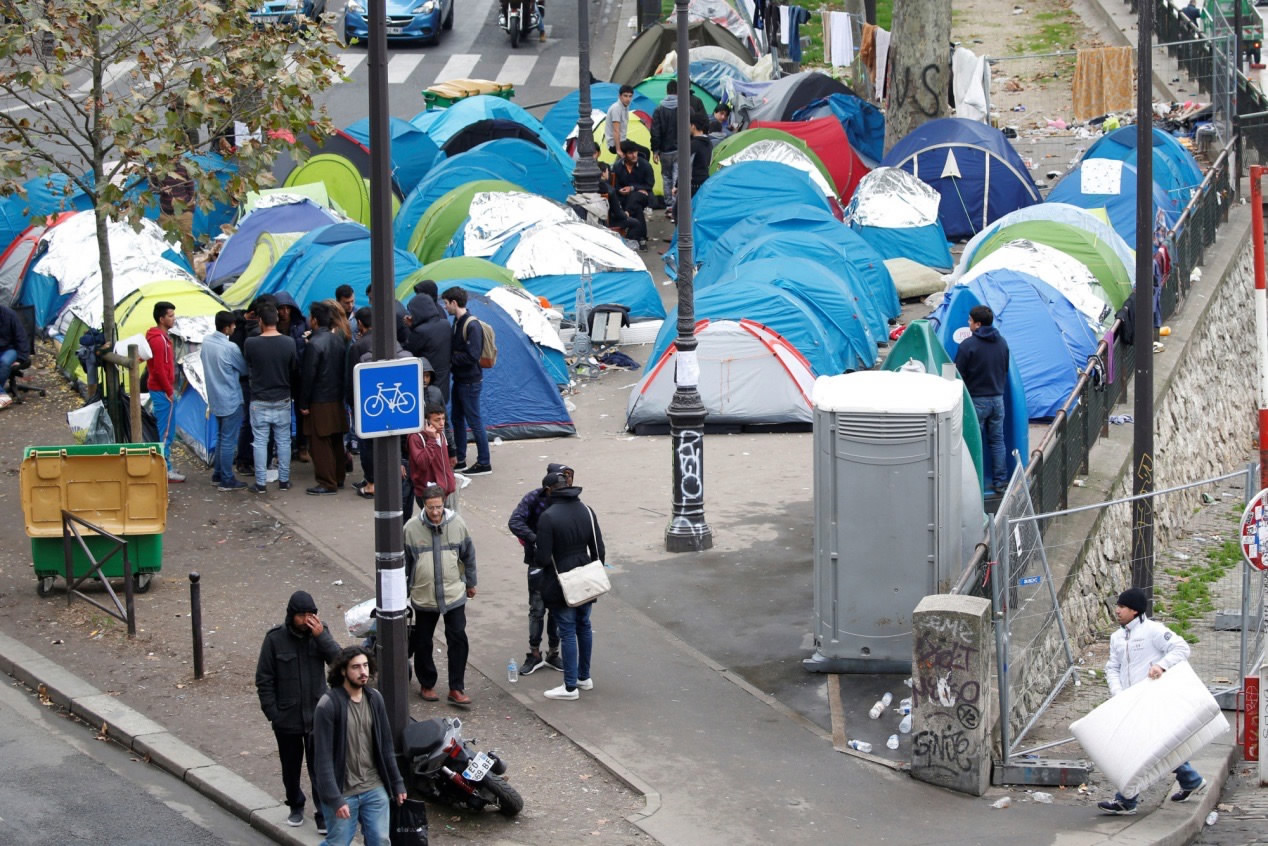
Tents are seen at a makeshift migrant camp on a street near the metro stations of Jaures and Stalingrad in Paris, France, October 28, 2016. /CFP Photo
Tents are seen at a makeshift migrant camp on a street near the metro stations of Jaures and Stalingrad in Paris, France, October 28, 2016. /CFP Photo
"From one death for every 269 arrivals last year, in 2016 the likelihood of dying has spiraled to one in 88," Spindler said.
More asylum seekers have now reached Italy by boat in 2016 than in any previous year on record, surpassing the previous record of 170,000 set in 2014.
The overall number of migrants making the journey was down significantly from last year, however. In 2015, over one million people – refugees, displaced persons and other migrants – made their way to the EU, either escaping conflict in their country or in search of better economic prospects. But although overall numbers decreased in 2016, 363,279 refugees still arrived in Europe as of November 11.
The decrease is partly down to the EU’s efforts to take coordinated action to reduce the number of migrants traveling to the bloc. Improvements in Turkish policing, increased threats of deportation from Greece, and the closure of a humanitarian corridor between Greece and Germany have all played a role. But agreeing on policy has been tough and exposed splits within and between member states.
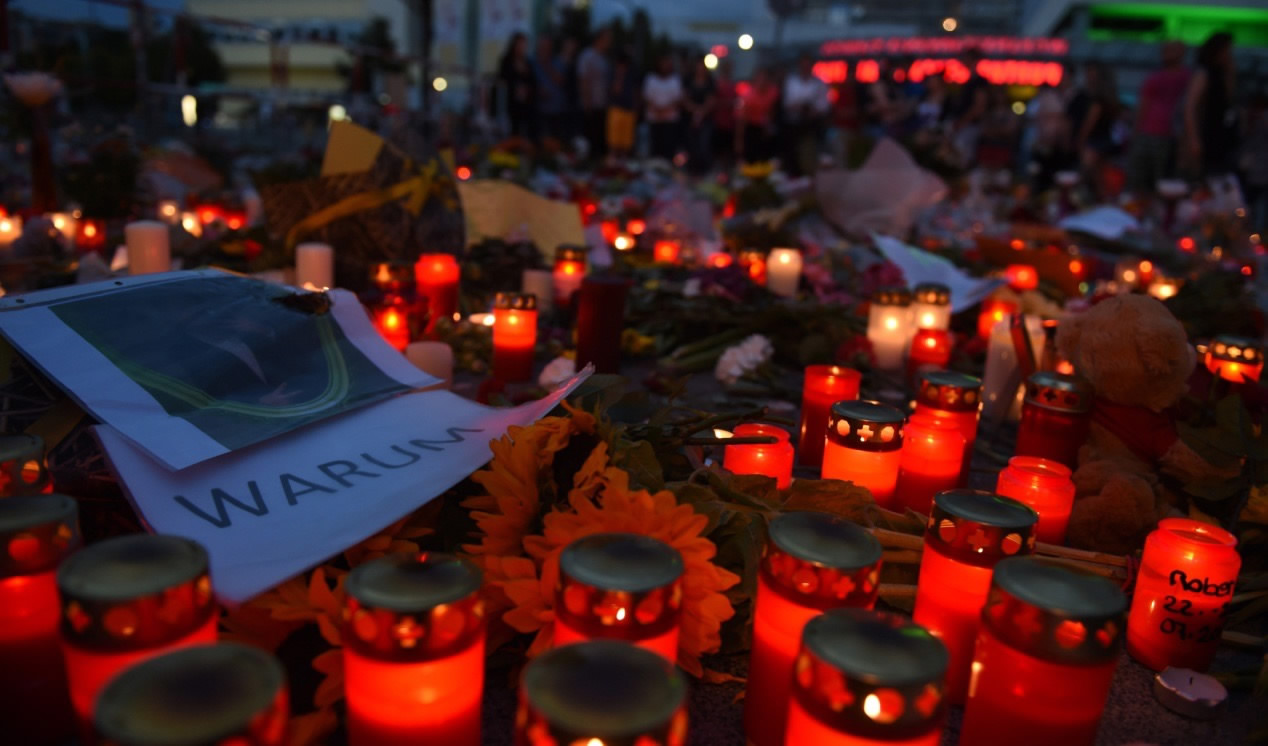
A sign reading "Why" lies next to flowers and candles on July 24, 2016 near the Olympia Einkaufszentrum shopping center in Munich, Germany, where an 18-year-old German-Iranian student run amok. /CFP Photo
A sign reading "Why" lies next to flowers and candles on July 24, 2016 near the Olympia Einkaufszentrum shopping center in Munich, Germany, where an 18-year-old German-Iranian student run amok. /CFP Photo
A much vaunted EU-Turkey migrant deal was put in place in March, and initial results were promising. Under the agreement, migrants arriving in Greece who do not apply for asylum or have their claims rejected are sent to Turkey. And for every migrant returned to Turkey, the EU must settle another. But in the aftermath of July’s failed coup in Turkey, the EU has expressed doubts about keeping a promise to allow Turks visa-free travel within the bloc – potentially putting the deal in jeopardy.
And Europe has yet to strike upon a strategy to cut migration between Libya and Italy. To date, the plan - sending navy vessels into the sea to arrest smugglers in international waters - has had only moderate success.
TERROR STRIKES
As hundreds of thousands sought refuge in Europe from the atrocities of ISIL, followers of the group struck repeatedly on the continent.
Terrorist attacks planned and carried out by individuals pledging allegiance to ISIL included the notorious Nice truck attack in July. A man drove a truck through crowds gathered on the promenade in the French seaside town during Bastille Day festivities, killing 86 people and injuring hundreds of others.
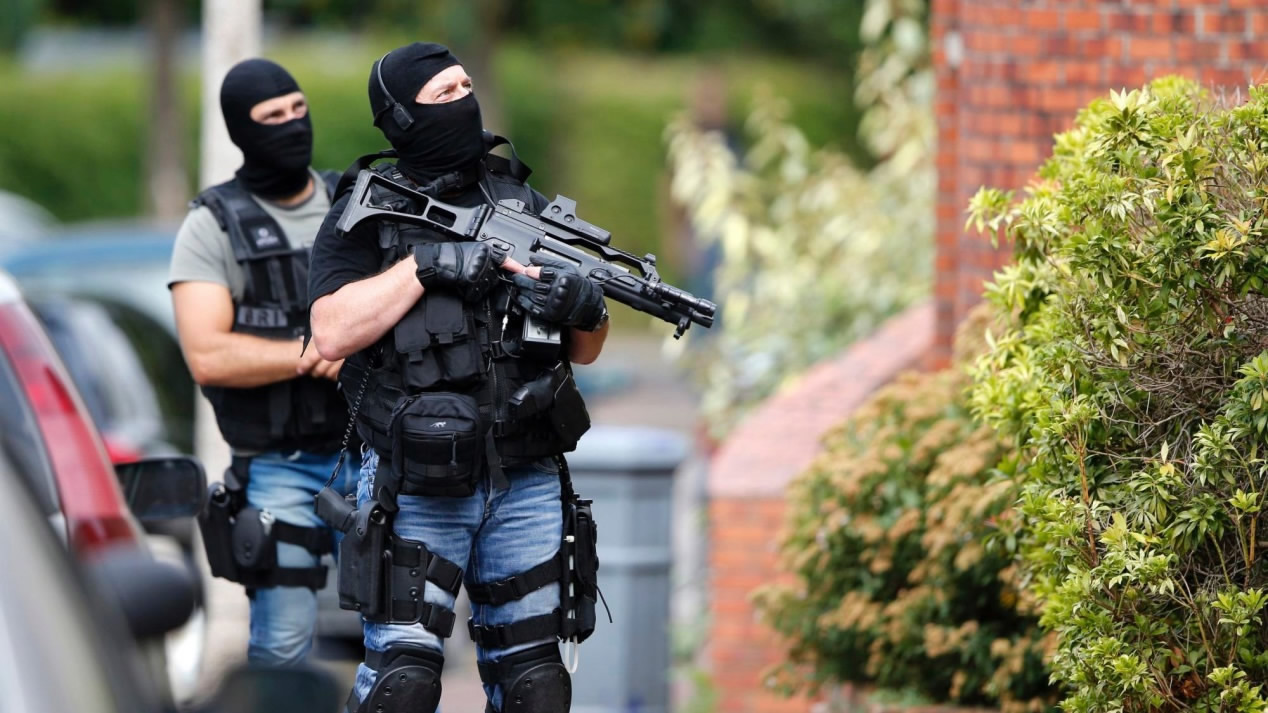
Members of French special police forces of Research and Intervention Brigade (BRI) are seen during a raid after a hostage-taking in the church in Saint-Etienne-du-Rouvray near Rouen in Normandy, France, July 26, 2016. /CFP Photo
Members of French special police forces of Research and Intervention Brigade (BRI) are seen during a raid after a hostage-taking in the church in Saint-Etienne-du-Rouvray near Rouen in Normandy, France, July 26, 2016. /CFP Photo
Also in July, two assailants slit the throat of a priest in his church in Normandy, and took four others hostage. Further attacks were perpetrated that month in Germany, where four atrocities occurred within a single week. This followed March’s coordinated suicide bombings in Brussels, which killed 32 people and wounded more than 300 others. And in the run-up to Christmas, three attacks occurred within 24 hours – a deliberate truck crash attack on a festive market in Germany, a shooting spree at an Islamic center in Switzerland and the assassination of the Russian ambassador in Turkey.
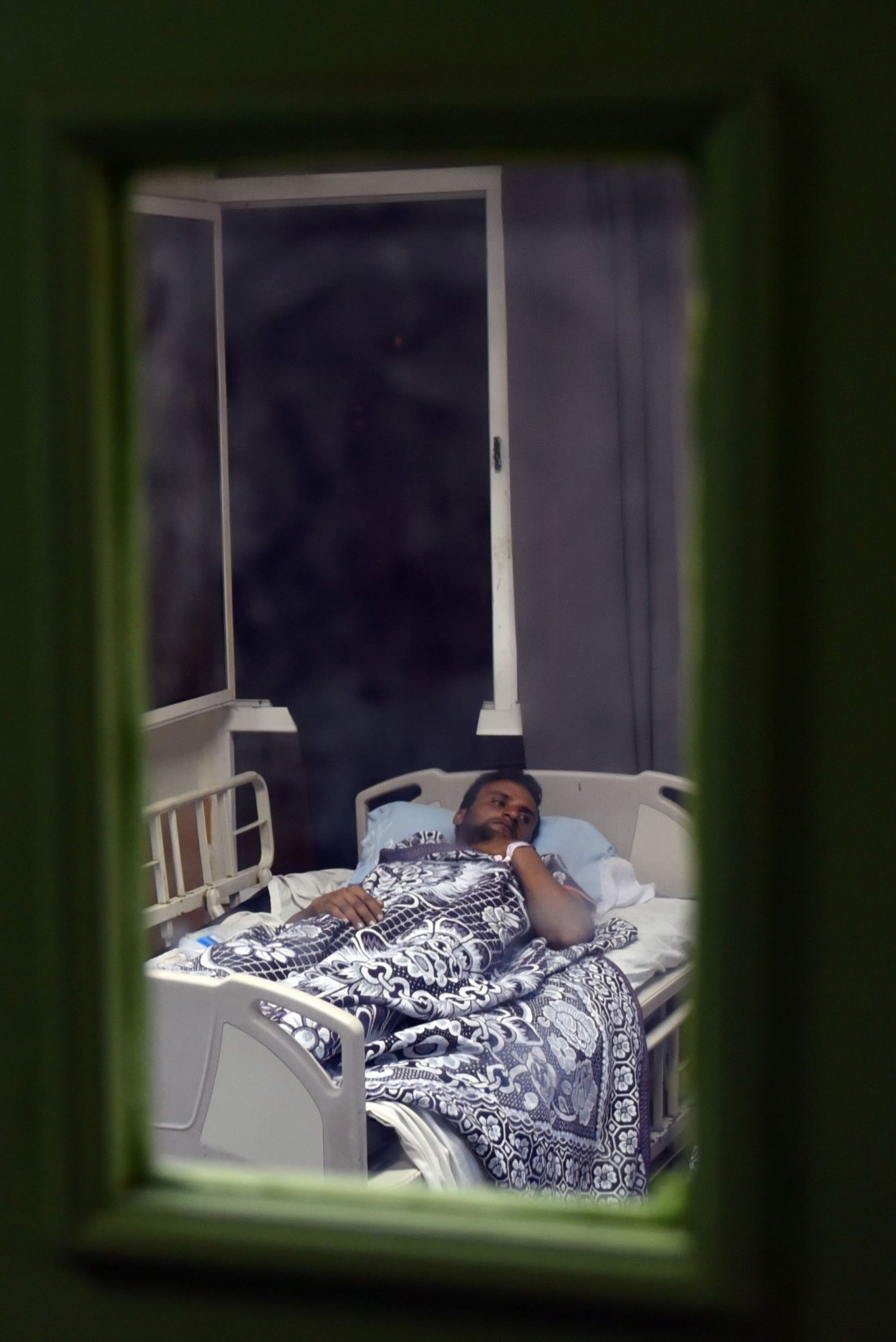
Rescued migrant Bader Mohammed Abdel Hafez, a 29-years old Egyptiqn lies in bed at Rashid hospital in Rosetta, northern Egypt, on September 21, 2016 after a boat carrying migrants capsized in the Mediterranean off Egypt's north coast. /CFP Photo
Rescued migrant Bader Mohammed Abdel Hafez, a 29-years old Egyptiqn lies in bed at Rashid hospital in Rosetta, northern Egypt, on September 21, 2016 after a boat carrying migrants capsized in the Mediterranean off Egypt's north coast. /CFP Photo
The attacks in Europe were horrifying, and repeated a trend seen in 2015. But how can they be stopped? And although the number of migrants fleeing to Europe decreased, the number of deaths rose. Is the EU’s already restricted open border policy under permanent threat? Do the answers lie beyond Europe’s borders?
Questions for 2017
-Migration flows between Turkey and Greece were stemmed in 2016, but migration to Europe from northern Africa hit a record high. Will world powers turn their attention to the chaos in Libya?
-Terrorist groups have used social media to recruit and motivate. Will tech companies and governments find more effective ways to combat this trend?
-With anger over the influx of migrants and fear about terrorism, could the EU’s open borders be under threat? And what will happen in the key German, Dutch and French elections in 2017?
(Written by Chen Chen; Edited by John Goodrich; Video edited by Mi Xue; and Room with a View produced by Tian Yi)

